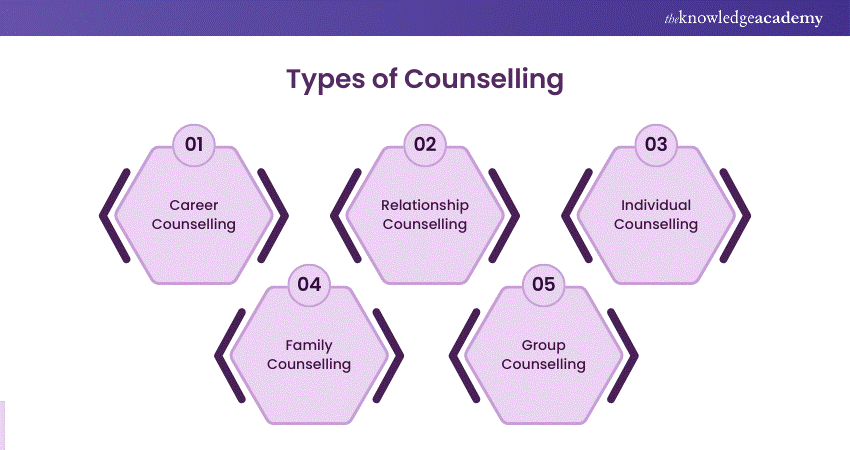Discovering the Advantages of Virtual Therapy in Modern Mental Healthcare
The rise of virtual therapy notes a considerable change in psychological health and wellness treatment. It uses improved availability, enabling people from diverse backgrounds to seek assistance without geographical constraints. Flexibility in scheduling accommodates differing way of livings, while the convenience of home can promote visibility. The ramifications of these adjustments extend past mere ease. The evolving landscape of therapy elevates vital concerns regarding its long-lasting impacts on person involvement and treatment results.
Boosted Accessibility for All
Although traditional therapy frequently presents barriers such as geographical location and scheduling conflicts, virtual therapy substantially improves accessibility for people seeking psychological health and wellness support. By getting rid of the demand for physical travel, virtual therapy permits clients from remote locations or those with mobility obstacles to attach with qualified professionals. This mode of therapy can get to underserved populations that might lack neighborhood mental health and wellness sources, thereby dealing with disparities in accessibility to care. In addition, virtual platforms can accommodate varied demands, offering services in numerous languages and fitting numerous social backgrounds. Clients can engage with a more comprehensive range of professionals, providing them with alternatives that straighten with their particular demands and preferences. This enhanced availability cultivates an extra inclusive setting, allowing people to look for assistance without the stigma often related to in-person sees. On the whole, virtual therapy stands for a significant advancement in making mental health and wellness treatment extra easily accessible to all.
Flexibility in Organizing Sessions

As virtual therapy proceeds to gain traction, its intrinsic adaptability in organizing sessions verifies to be a considerable advantage for several people. Unlike standard in-person therapy, virtual therapy permits clients to select session times that best fit their individual and professional commitments. This adaptability accommodates those with requiring work routines, family obligations, or other commitments that can make participating in physical consultations testing.
Clients can conveniently reschedule or readjust their sessions as needed, decreasing the tension associated with stiff appointment systems. The schedule of numerous time slots throughout the week, including evenings and weekends, better enhances accessibility. This adaptability not only encourages consistency in presence but additionally cultivates a greater dedication to the therapeutic process. Ultimately, the flexibility in scheduling sessions stands for a transformative shift in psychological health and wellness treatment, equipping people to prioritize their well-being without compromising various other facets of their lives.
Convenience of a Familiar Atmosphere
The comfort of a familiar environment significantly boosts the effectiveness of virtual therapy for numerous customers. Taking part in therapy from the safety and security of their own homes enables people to really feel even more at simplicity, lowering stress and anxiety that might come with traditional in-person sessions. This experience can promote open interaction, allowing clients to reveal their thoughts and sensations more openly.
In addition, the visibility of individual products and the capability to manage their environments can add to a complacency and leisure. Clients commonly report that remaining in a comfortable space allows them to concentrate extra on the healing process instead of the setting itself.
In addition, the casual nature of virtual sessions can help dissolve obstacles that may exist in a traditional office setting, fostering a much deeper connection with specialists. In general, the comfort of acquainted surroundings plays an important function in enhancing the healing experience and performance for many people looking for psychological wellness support.
Larger Variety Of Healing Choices
A broader variety of therapeutic alternatives appears via virtual therapy, allowing customers to accessibility various techniques that might not be practical in standard setups. This flexibility enables individuals to explore varied techniques such as cognitive-behavioral therapy, mindfulness practices, art therapy, and even specialized interventions like trauma-informed care or dialectical habits therapy.
Clients can select from a wider spectrum of specialists, consisting of those who specialize in specific niche areas or specific populaces, boosting the possibility of locating a suitable match. Virtual systems typically supply access to group therapy sessions, support areas, and workshops that might be geographically not available otherwise.
This selection equips customers to participate in their recovery process according to their one-of-a-kind choices and demands, potentially enhancing motivation and dedication to treatment. Because of this, the landscape of psychological health care ends up being a lot more inclusive and versatile, catering to a broader variety of specific experiences and obstacles.
Minimized Stigma Bordering Therapy
Accessing therapy through virtual platforms adds to a considerable reduction in the preconception traditionally connected with psychological health care. By supplying a very discreet and exclusive environment, virtual therapy allows individuals to seek aid without the concern of being judged or recognized. This privacy attract those that may or else think twice to seek in-person therapy because of social assumptions bordering psychological wellness.
Moreover, as the prevalence of virtual therapy rises, it stabilizes the conversation around psychological health, making it an extra acceptable part of daily life. Individuals commonly feel much more comfortable discussing their experiences on-line, advertising openness and minimizing sensations of isolation. The access of these services also encourages a broader demographic to involve with check here mental health sources, fostering a culture of assistance instead than embarassment. Eventually, the rise of virtual therapy plays a crucial duty in reshaping attitudes towards seeking aid, adding to an extra accepting culture pertaining to psychological health difficulties.
Cost-Effectiveness and Price

Minimized Session Costs
Lots of people seeking psychological wellness assistance locate that virtual therapy greatly lowers session expenses compared to traditional in-person alternatives. The removal of travel expenses and time off work usually adds to overall cost savings. Additionally, numerous virtual specialists use affordable rates as a result of lower above costs related to maintaining a physical office. This shift in expense enables customers to access top quality psychological health and wellness services without the economic pressure that might include standard therapy. For many, this price makes it possible for more constant sessions, which can enhance therapy end results. Consequently, virtual therapy not just equalizes accessibility to psychological health and wellness treatment however also offers a lasting financial design that straightens with clients' budgets, making psychological health support much more achievable for a larger target market.
Broadened Access Options
While standard therapy commonly provides logistical obstacles, virtual therapy greatly broadens gain access to alternatives for people seeking mental health and wellness treatment. By removing the demand for travel and permitting flexible organizing, virtual therapy accommodates varied way of livings and dedications. This accessibility is particularly helpful for those in remote locations or with mobility obstacles. Furthermore, the cost-effectiveness of virtual therapy lowers economic stress, making psychological health and wellness services a lot more obtainable. Lots of platforms use tiered prices or gliding range costs, advertising price. Insurance provider significantly acknowledge virtual therapy, additional improving its monetary ease of access. Overall, virtual therapy not only expands the scope of who can receive treatment however additionally addresses economic barriers, making mental wellness assistance more comprehensive and possible for all.
Boosted Continuity of Treatment
Enhanced continuity of treatment emerges as a significant benefit of virtual therapy in modern-day mental healthcare. This technique permits patients to preserve constant interaction with their specialists, no matter of geographical barriers or organizing problems. relationship therapy. The versatility of virtual sessions cultivates normal check-ins, which are crucial for checking development and adjusting treatment intends as needed
Furthermore, electronic health documents and telehealth systems facilitate smooth info sharing amongst care companies. This interconnectedness guarantees that all professionals entailed in a patient's care are updated on treatment developments, causing more collaborated and effective treatments.
Individuals frequently experience lowered anxiety and raised involvement because of the convenience of accessing therapy from familiar environments. Such availability improves adherence to therapy routines, eventually enhancing end results - relationship therapy. To summarize, virtual therapy not only bridges gaps in psychological health and wellness services but likewise strengthens the connection of treatment, a crucial component of effective healing partnerships
Regularly Asked Concerns
Just How Does Virtual Therapy Make Certain Privacy and Privacy for Customers?
The existing concern addresses the steps virtual therapy utilizes to protect client privacy. Using encrypted platforms, safe and secure logins, and conformity with policies like HIPAA, virtual therapy warranties that sensitive information continues to be private and inaccessible to unapproved individuals.
Can I Change Therapists Easily in Virtual Therapy?
Changing specialists in virtual therapy is usually uncomplicated. Clients can connect their need for a modification with the platform, permitting versatility in discovering a better match without the logistical obstacles of in-person appointments.
What Innovation Do I Required for Virtual Therapy Sessions?
To join virtual therapy sessions, a specific normally needs a trustworthy internet connection, a computer or mobile phone with a cam and microphone, and access to a secure video conferencing system specified by their specialist.

Are Virtual Therapy Procedure as Effective as In-Person Sessions?
Current research studies show that virtual therapy sessions can be just as effective as in-person sessions, depending on the person's choices and situations. Factors such as convenience and ease of access might improve the general therapeutic experience for some customers.
What Should I Do if I Experience Technical Issues Throughout a Session?
If technical concerns arise throughout a session, one must smoothly connect the issue to the specialist, attempt to reconnect, or switch to a backup approach. Persistence and adaptability are necessary in managing these disturbances.